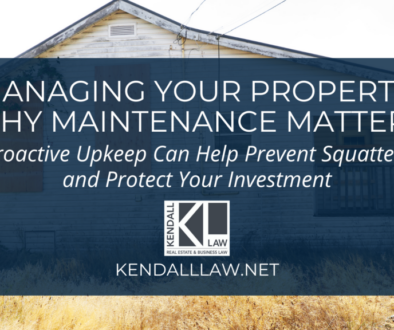Requirements of Disclosure for Realtors and How to Avoid Liability
One of the largest types of lawsuits related to the sale of property for real estate agents/brokers is that of misrepresentation or failure to disclose during the transaction.
There is a legal obligation under Civil Code 2079 for a real estate agent or broker to conduct a reasonably competent and diligent visual inspection of the property and to disclose to the prospective purchaser all facts materially affecting the value and desirability of the property. This does not require an inspection of areas that are normally inaccessible nor does it require an affirmative inspection of areas off the site or of the public records.
What does materially affecting the value and desirability of the property mean? Undisclosed facts are material if they would have a significant and measurable effect on market value. Shapiro v. Sutherland (1998) 64 Cal. App. 4th 1534, 1544. Now what does that mean. Well, whether information “is of sufficient materiality to affect the value or desirability of the property … depends on the facts of the particular case and is a question of law.” Reed v. King (1983) 145 Cal. App. 3d 261, 265–66. Think about the gravity of the fact to be disclosed. The most common would be a crack in the foundation which is likely going to cause an impact on the value and desirability of the property. Other common items, leaks in the roof, improvements without permits, and issues with mold. There is no affirmative duty to disclose that a person died at the property as long as the death is over 3 years prior. There is also no duty to disclose that an occupant had HIV. CC 1710.2 There is a duty to disclose noisy neighbors that amount a nuisance. Shapiro v. Sutherland (1998) 64 Cal. App. 4th 1534, 1546.
The realtor does not have to crawl in the attic and pull apart things to inspect. But if they walk around the property and can see cracks or issues, the items need to be disclosed. These disclosure requirements do not relieve a prospective buyer from using reasonable care to protect his or herself. CC 2079.5. A prospective buyer is required to also do a visual inspection and should be advised to have his own inspection done (this is usually a part of the contingencies.)
A breach of this duty of disclosure will give rise to a cause of action for both rescission and damages. There is a 2-year statute of limitations for action arising from the failure to comply with 2079. CC 2079.4. (date of recording, close of escrow or date of occupancy, whichever occurs first). However, this statute of limitations does not apply to intentional fraud. Williams v. Wells & Bennett Realtors (1997).
Using the required TDS under 1102 et seq will help avoid claims for misrepresentation/failure to disclose. It is also important to disclose what the seller discloses to their agent. For instance, the seller mentions that there was a leak during the winter rainstorms or that there is crack in the foundation, it needs to be disclosed. If the seller has had any environmental reports or any inspections done regarding the condition of the property, those need to be disclosed to help limit liability. However, a real estate agent may not rely on a home inspection report to avoid its own statutory duty to conduct a reasonable inspection.
If the seller had a prior deal and disclosures were made and the buyer had an inspection that disclosed things that affected the value of the property and the potential buyer provided those to the realtor, they need to be provided as a part of the disclosures.
For consultations or information on having Mrs. Kendall present for your agents Contact Us. Learn more about Eileen’s Signature Talks.
Author: Eileen Kendall





